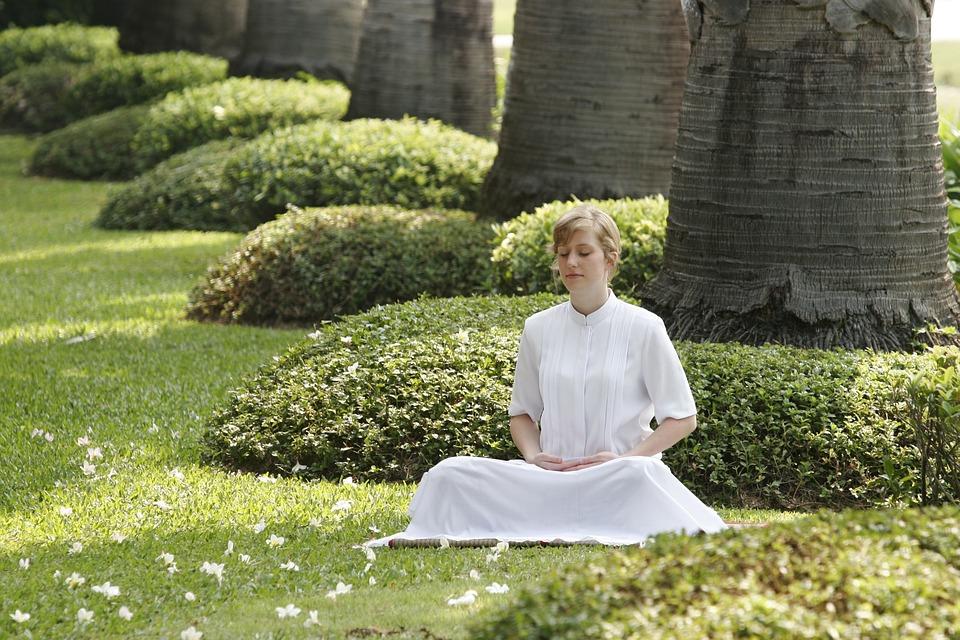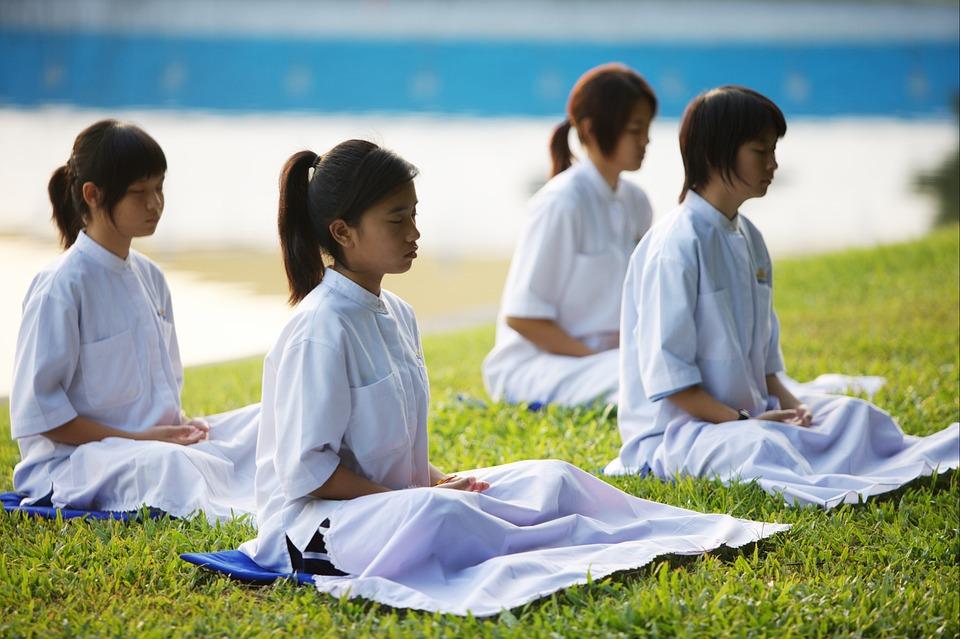
A landmark scientific study conducted by researchers in the United States has highlighted the efficacy of mindfulness meditation and practices in reducing and treating chronic anxiety.
The study, published in the peer-reviewed journal JAMA Psychiatry on 9 November, has been noted as the first randomized clinical trial to compare the effectiveness of guided mindfulness-based stress reduction (MBSR) with the commonly prescribed pharmaceutical antidepressant escitalopram.
Dr. Elizabeth Hoge, lead author on the study, stated that the findings underlined the importance of mindfulness meditation as a treatment for anxiety and paved the way for wider acceptance within the medical community and the public healthcare system. “Our study provides evidence for clinicians, insurers and healthcare systems to recommend, include, and provide reimbursement for mindfulness-based stress reduction as an effective treatment for anxiety disorders because mindfulness meditation currently is reimbursed by very few providers,” said Dr. Hoge. “A big advantage of mindfulness meditation is that it doesn’t require a clinical degree to train someone to become a mindfulness facilitator. Additionally, sessions can be done outside of a medical setting, such as at a school or community center.” (Georgetown University Medical Center)
The researchers at Georgetown University Medical Center, a biomedical research and educational organization based in Washington, DC, recruited 276 patients between June 2018 and February 2020, who were randomly assigned an eight-week course of either MBSR or escitalopram. The symptoms of the patients were assessed at enrollment and at the conclusion of the eight-week intervention, along with post-treatment assessments after 12 and 24 weeks.
By the end of the trial, 102 patients had completed the entire MBSR treatment, while and 106 had completed the prescribed course of escitalopram. The researchers evaluated the study participants at the end of eight weeks using the same clinical scale, and found that both groups showed about a 20 per cent reduction in the severity of their symptoms.
“The fact that we found them to be equal is amazing because now that opens up a whole new potential type of treatment,” said Dr. Hoge, director of the Anxiety Disorders Research Program and associate professor of psychiatry at Georgetown. She added that while she did not suggest that meditation should replace pharmaceutical intervention, the study provided scientific evidence to support new treatment options. (NPR)

Developed at the University of Massachusetts Medical Center in the 1970s by the scholar, author, and Zen Buddhist Jon Kabat-Zinn, MBSR has been used to assist and treat people suffering from stress, anxiety, and depression for several decades through a combination of mindfulness, body awareness, and yoga practices.
Although MBSR has its roots in the Buddhist teachings and is founded on the principles of vipassana meditation, the program as a medical treatment is intentionally secular. Kabat-Zinn’s intention in designing the program was to bring the benefits of his Dharma practice to a wider mainstream audience that might otherwise have little interest in religion or spirituality.
The MBSR techniques offered a way for the patients to examine their negative thought patterns and habits with less judgment, Dr. Hoge explained. “Somebody with anxiety tends to worry about bad things that may happen, like failing an exam,” she said. “When the thought comes up, then the person can learn to experience that as just a thought, not the truth or anything that needs to be acted on.” (NPR)
A study published in The Lancet Psychiatry journal in February found anxiety disorders to be the most commonly reported mental ailment, affecting at least 301 million people worldwide.
Der. Hoge added that the efficacy of the mindfulness-based treatment relied heavily on the patient’s commitment to practice consistently: “It is important to note that although mindfulness meditation works, not everyone is willing to invest the time and effort to successfully complete all of the necessary sessions and do regular home practice, which enhances the effect,” she observed. (Georgetown University Medical Center)
The mindfulness techniques employed by the participants in the MBSR group included breath awareness, body scanning, and mindful movement. They practiced 45-minute daily meditations at home, as well as day-long weekend retreats.
Other researchers have lauded the new study and the evidence it presents: “It does suggest that both [pharmaceutical and mindfulness-based] treatments are helpful, and about equally so,” said University of Texas, Austin research associate professor Michael Mrazek, co-founder of the Center for Mindfulness & Human Potential at the University of California, Santa Barbara. “Importantly, the study shows that MBSR can achieve similar outcomes with tremendously fewer side effects,” (NPR)
See more
Mindfulness-Based Stress Reduction vs Escitalopram for the Treatment of Adults With Anxiety Disorders (JAMA Psychiatry)
Mindfulness-Based Stress Reduction is as Effective as an Antidepressant Drug for Treating Anxiety Disorders (Georgetown University Medical Center)
Global, regional, and national burden of 12 mental disorders in 204 countries and territories, 1990–2019: a systematic analysis for the Global Burden of Disease Study 2019 (The Lancet Psychiatry)
Daily meditation may work as well as a popular drug to calm anxiety, study finds (NPR)
Meditation Equal to First-Line Medication for Anxiety (Medscape)
Related news reports from BDG
Science & Wisdom LIVE Announces Online Dialogue: “Beyond Fear – Towards Resilience”
Science & Wisdom LIVE Announces New Online Dialogue: “Body, Mind, Consciousness”
Dalai Lama Holds 35th Anniversary Dialogue with the Mind & Life Institute
Illuminating the Mind: New Online Course to Explore the Nature of Mind and Consciousness
Related features from BDG
Meditating with a Fuzzy Brain
Reflections on Mindfulness Practice: An Overview from the Early Stages to the Age of “McMindfulness”
Book Review: Mindfulness: Where it Comes From and What it Means
Can There Be Too Much Mindfulness?
Building Bridges: Researching the Efficacy of Religious Buddhist Practice at the University of Hong Kong
MBSR and Buddhist Mindfulness: Seeking Continuities, Not Differences














